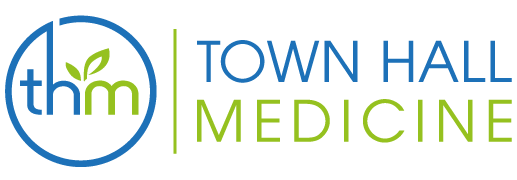THE MICROBIOME SUMMIT : The Established Thinking
A Historical Look at Probiotics
Dr. Gregor Reid, PhD

Often called the “grandfather” of probiotics, Dr. Gregor Reid has not followed the mainstream. Long before it was “cool” to do so, Dr. Reid crafted the global definition of what a probiotic is. In this lecture, you will get a behind-the-scenes look into the history of probiotics from the grandfather of probiotics himself – including a look at some of the scrutiny and ridicule that he dealt with when he was making the first exciting discoveries about probiotics and what they can do. You will also learn about what the future of probiotics may be.
- Gregor:
- I was at an executive meeting at the Lawson Hill Research Institute and they were talking about some subject, I can’t even remember what it was and I made a suggestion. And the discussion kept going on for another five, ten minutes. And this other guy made the exact same suggestion that I had made, and everyone said, “Oh, Chris what a great idea. A brilliant idea. I really like that idea.” And I said, “Wait a minute, I said the exact same thing ten minutes ago and no one has said that mine was a great idea.” And the Executive Director turned to me and he said, “Gregor, you’re ahead of your time.” And I thought that was quite telling because where were you in 1984? In 1984 we had discovered that, with Dr. Andrew Bruce, my colleague who’s a Urologist at the Toronto General Hospital. That these organisms called lactobacilli, beneficial organisms and naturally living in the healthy vagina were able to protect against E. coli and bladder infections and that was just the beginning of our research. And so, this was an exciting time and we went outside the cafeteria one day and a colleague of his stopped us and said, “Hah, I hear you’re looking at these lactobacilli, so what are you gonna use? Vanilla? Strawberry yogurt? Put that in that the vagina? Hah. Hah.” And he walked away. It’s kind of a telling moment for me because it was wow that’s the real ultimate of you’re crazy. So, we applied to the Medical Research Council of Canada and got rejected and one of the reviewers commented, why are you starting these lactobacilli when we have antibiotics? And so, when we look back in time a lot has changed, and these organisms, like, the bacilli shown here in blue turns out that they are very very important organism and they have many attributes and they produce compounds that are important for us. They’re critical in conception in fertility and in pregnancy and the part of fermented foods, and we as humans have come from those fermented foods. That’s what we used to eat as ancestors. And so here are some of the places that I’ve been to in the world, I’ve been very fortunate but in the 60s I lived in Scotland and we didn’t have a fridge. Now some of you think you don’t need a fridge in Scotland it’s always cold. But we didn’t have a fridge so what did we do? We shopped pretty much every day and if you can believe it there was a bread strike in Britain and people panicked oh we can’t get bread. So, my mom used to send my brother to one shop and me to another one because every family was allowed one loaf of bread because of the rations and that was just the 60s. Imagine now where there is globalization of food. You can get into a supermarket and find fruits and vegetables from – I did it the other week from 11 countries. Because we want to have these fruits and vegetables and foods now. Today. In the winter. In the summer. In the spring. In order to produce that there’s this globalization of food and that globalization has increased the use of pesticides and chemicals, and even antibiotics to make animals fat. How ridiculous is that? And so, the world has changed dramatically in a very short period of time. Contrast that with hunter gatherers. Now Jeff Leach a colleague of mine with the Human Gut Project is living with the Hadza in Tanzania. These are the hunter gatherers and Jeff is looking at what do they do and they’re not exposed so much to western civilization. Obviously, Jeff’s there so they’re not completely isolated. But in general, they tend to have hunter gatherer kind of attributes and for four days in a row they might just eat berries, and then another four days in a row, they eat an animal because they’ve had a kill. So, their microbiota, their organisms in the gut are gonna be very different from you and I. In some ways, it reminds us of what life used to be like even with in our timeframe where we had this fresh food rather than sort of processed, highly processed, lots of sugar. So, we’re gonna find out if the microbiota in those hunter gatherers tells us something about our ancestry. Because we’re all human and yet we’re unique. And I like to tell students what are the things that we absolutely need? Air. Water. Food. Energy. And microbes. And I say bacteria but there’s phage viruses those other types of microbes that probably we’re going to learn more about and how integral they are to our lives. So, if we don’t have them, we don’t exist and why have we ignored them for so long? We have. Where do we get them from? Well, hold on a minute probably from the mom. Well, people are saying, studies are saying that in fact, there is microbes exposed to the placenta and the amnion they’re almost signalling something to the fetus. Well, it makes sense. Why would you have a sterile environment and why would you have that baby come into a microbial world having never seen a microbe? Alright. So then, the baby is born. How is the baby born? Vaginally or caesarean? Well, hello? Why are the rates of caesarean section in some countries at 80 per cent? So, you’re not getting you’re not getting your bacteria from the vagina and exposure on birthing. Then you say okay; if your C-section born and you don’t breast-feed. Well breastmilk has got bacteria in it. The mother is passing on these organisms for the baby and they grow in the milk once it goes into the baby’s tummy. So, if you don’t have a vaginal birth and you don’t breast-feed. How do you get your bacteria? From the environment. From the skin. Oh, wait. We can’t get it from the skin because we’re putting all those anti-microbial compound on our hands. So, that means we get it from our clothes. Oh, okay. That’s good. So, which clothes are you giving to your baby? Where were they made? Bangladesh? Vietnam? Is that your choice? So, these organisms are absolutely critical to us and in our life, they prime our immunity. So, what if you want to give some of them back? And remember in an Neonatal Intensive Care Unit, we’re not giving those beneficial bacteria back. We’re creating a room with multi-drug resistant organisms. So, if you want to give them back, the concept is called probiotics and the definition of probiotics is live microorganisms, which when administered in adequate amounts confer benefit on the host. Oh, I don’t want to look at that. That’s a definition. But it’s a very important one. Live. It has to be live. They have to be administered in adequate amounts and you’ll go to the shops and you’ll see billions and billions that must be better. Not necessarily. The adequate amount conferring the health benefit is key. Because it doesn’t matter how many it takes, is proving to have the health benefits. So, if the product has never been tested in humans it’s really not a probiotic. And the other thing people like to do well, I want to get 12 strains. So, 12 bacterial types, that might be better than just one. Well, maybe not. What happens if those 12 strains inhibit each other? It’s not going to be better for you. So, unfortunately, while the market is going crazy, there’s not enough human studies on some of the products. So, I was asked what would be my five favourite probiotic studies? So, here’s the first one. Where oral probiotics influence the vagina and the bladder. And you think, well hold on, these are separate organs and separate areas of the body how can something in my intestine then affect? Well, it turns out the proximity of the female anatomy. The organisms can go from the rectum. They go into the skin and the perineum into the vagina and some cases into the bladder. That’s anatomy. It’s nothing to do with hygiene and so we showed that you could deliver benefits to the vagina and bladder by taking something orally. The next one is a fascinating study from Spain. A woman had mastitis and that’s as common in pregnancy and lactating and they gave them probiotics. Not only did the oral probiotics cure the mastitis, but the bacteria that went into the intestine made it to the breast and that has a lot of implications. Potentially, you could influence the breast microbiome by taking oral probiotics. The next one is interesting. I like to tell students, hands up, who’s ever babysat? Okay. So, you come to the house and the baby has been crying, the parents are “please I need a break” and so they go away for their break, they come back in the baby’s sleeping, and the mother says what did you do? Oh, I just gave it some bacteria. You can imagine, she’s on the phone. Get the lawyers over here. Get this kid to the hospital. It turns out that these organisms’ lactobacilli reuteri significantly reduced from a 197 minutes down to twenty minutes of crying. Great. Great breakthrough. Necrotizing enterocolitis – my wife and I, really my wife, we had twins, and unfortunately, they came early and we spent a number of weeks in St. Joseph’s Health Center in London, Ontario in the intensive care unit and sadly a baby died from necrotizing enterocolitis. This is a disease that’s really devastating and it destroys the intestine. And at the time, so this is 1992, people had never thought about why wouldn’t you give those kids probiotics? It turns out if you do you can prevent nec. You can prevent deaths. Incredible. And then lastly, this was a some series of studies from Germany where they gave it to people in hospital. Liver transplant patients. Imagine, who would think of giving someone who’s had abdominal surgery a probiotic plus oat fibre. In other words, what you’re doing, you’re treating the person is someone who needs good nutrients and the right organisms rather than the ones that can kill you. And people ask me, well, do I need probiotics because I’m healthy. And I say, “Are you healthy? Is the planet healthy?” No. Look at the cities we live in. 40 percent of deaths are caused by the environment. When we drink water and you go to New York City, I’m sure in Toronto if we tested it there’s traces of drugs in the water. We love to use pharmaceuticals and chemicals. It’s everywhere. In Britain they did a study and found 45 cleaning chemicals in pregnant women. So how do you reset the bar and personalize the intervention? Well, the ultimate way of resetting the bar is to take someone’s stool put it into a blender and put it back into another person. That’s called fecal transplanting and everyone’s going yuck, what a thought. Well, when they do this there is a 90 percent cure rate of colostrum difficile, which is a condition that can kill you. A 90 percent cure rate. Try finding drugs within 90 per cent cure rate? So, this is a great breakthrough and people are now looking at well if these organisms produce neurochemicals maybe they could also be used in people who have mental health or Alzheimer’s or dementia. So this is expanding and people are thinking in different ways of changing. Resetting that microbiota. So, then you ask the question whose fecal flora do you want? Rinaldo’s? Adele’s? Bill Gates? Oprah Winfrey? Donald Trump’s? And why do you want it? What is it that you’re trying to do? What about storing our poop when we’re young, keeping it in the freezer and then when we get in trouble when we’re older re-implanting it. What about going back to taking fermented foods that humans used to always take? Well, you look at The Canada Food Guide and in fact we looked at guides around the world. Fermented foods, which we should be taken every day at least once a day aren’t even in the food guide as a criteria. So, it requires fundamental change. And we had a project in Africa because why go to Africa? Because there mothers and children dying for conditions that we don’t necessarily worry about. Like diarrheal disease. Having a baby, people die from. Africa. The probiotic market is growing and it’s going be 47-billion-dollar market. A massive market. It’s even growing in Europe were the politicians have banned the word. Imagine banning the word. In Africa, no one is selling probiotics because people can’t afford it. So, we went and we set up Western Heads East inspired by Stephen Lewis, the great Canadian Diplomat and we basically taught mothers how to make their own probiotic yogurt. And then this was in Tanzania and colleagues of mine Remco Kort and Wilbert Sybesma formed this organization Called Yoba for Life and they had a tremendous breakthrough. They managed to put organisms into sachets like this. You can make 100 litres of probiotic yogurt. Now in Uganda, Kenya and Tanzania we have 40,000 people taking it every day. They’re making it themselves and we have empowered them and this is one of the mamas who’s doing that, and the kids of course love it. I’m gonna close with meeting and being inspired by Nobel Laureate, Desmond Tutu. An amazing human being and he once said “My humanity is bound up in yours. For we can only be human together. It’s those little bits of good put together that overwhelm the world.” In reality, we’re skeletons. Hosting microbes in a microbial planet and if we understand and embody the benefits we can reap the benefits. We have to remember how we evolved and how we can manipulate those beneficial microbes instead of our tendency to keep destroying things. Humanity and bacteria have been there forever, in fact, microbes will be there long after we’re gone. Imagine who would have thought that in 1984? Imagining what opening this door of knowledge can do for humanity? These are exciting times. Exciting times. Thank you very much.



